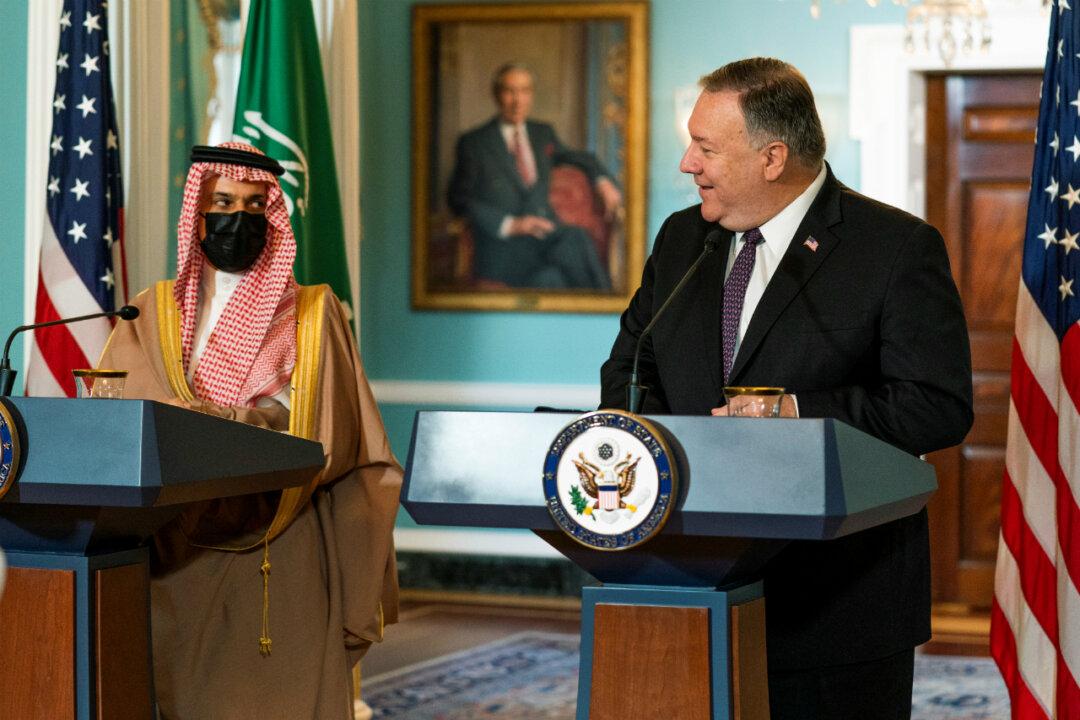U.S. Secretary of State Mike Pompeo on Wednesday urged Saudi Arabia to consider normalizing relations with Israel as he met with the Gulf country’s foreign minister, also saying that Washington supports a “robust program of arms sales” to it.
Pompeo said he raised the Abraham Accords, a U.S.-brokered agreement to normalize diplomatic ties with Israel, with Saudi Foreign Minister Prince Faisal bin Farhan Al Saud at a meeting on Wednesday at the U.S. State Department.





